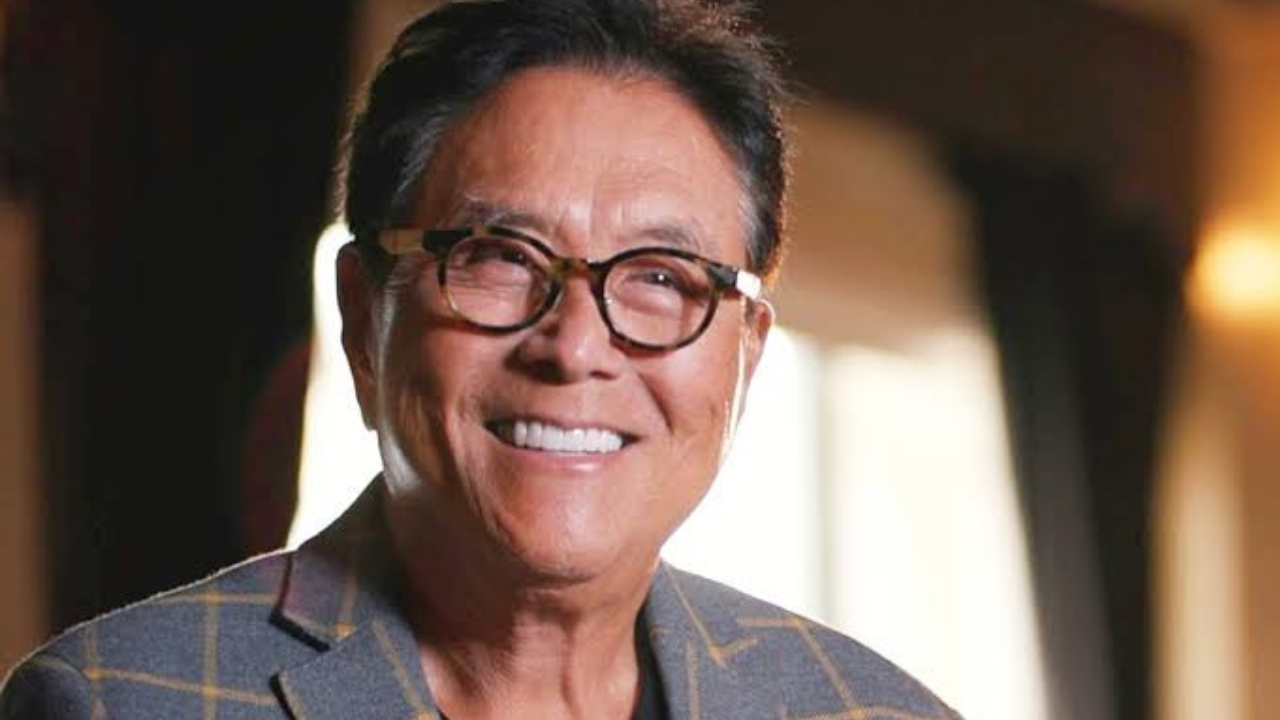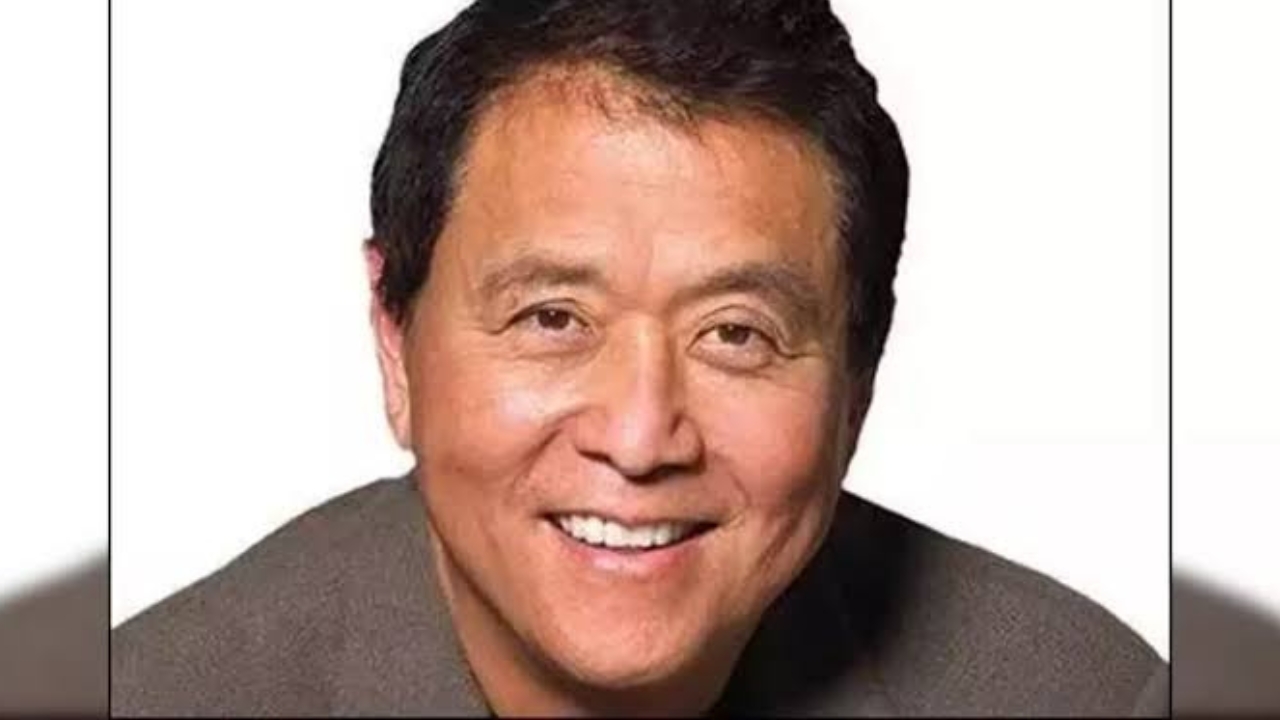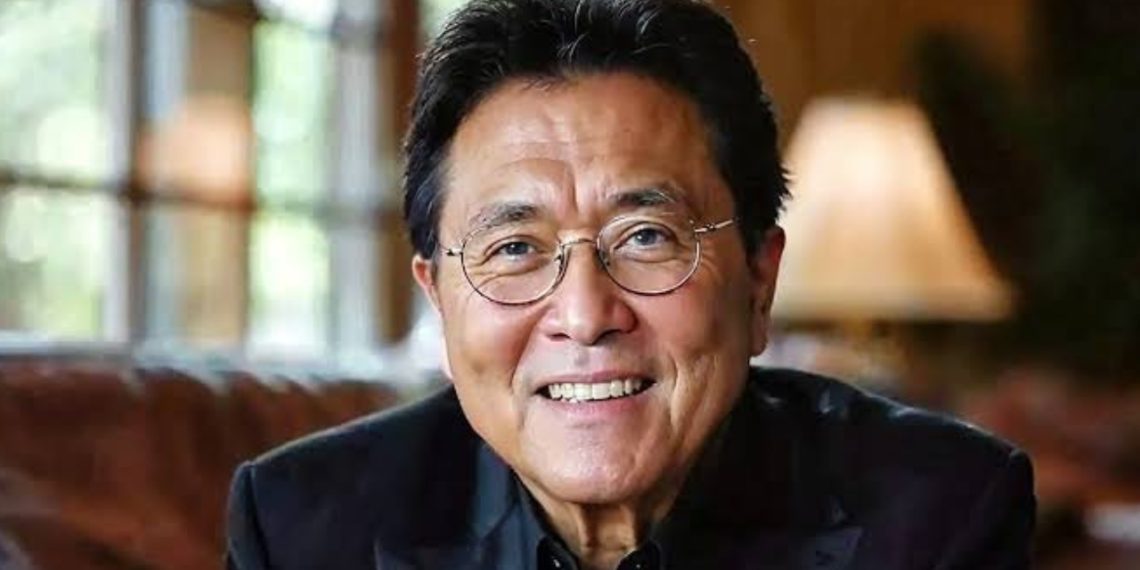Robert Kiyosaki is an American investor, entrepreneur, author, motivational speaker, and financial educator, best known for his personal finance book Rich Dad Poor Dad.
As of 2025, Kiyosaki has an estimated net worth of $100 million. He built his wealth through a combination of book sales, business ventures, real estate, and educational seminars, despite facing significant criticism and legal challenges throughout his career.
Early Life and Background
Robert was the son of Ralph and Marjorie Kiyosaki. His father was a highly educated man with a Ph.D. who worked as an educator.
However, Kiyosaki often critiqued his father’s life choices, citing his eventual poverty and job loss as examples of why traditional education does not guarantee financial success. This sentiment would later shape Robert’s financial philosophy.
After graduating high school in 1965, Kiyosaki attended the Naval College and joined the U.S. Marine Corps.
He served as a helicopter gunship pilot during the Vietnam War from 1972 to 1973. Kiyosaki credits his military experience with instilling the discipline and resilience needed for business success.
Early Entrepreneurial Ventures and Business Failures
Following his military service and earning an MBA in Hilo, Hawaii, Kiyosaki ventured into the business world. His first business involved producing and selling nylon/Velcro wallets. Though initially successful, the business ultimately failed.
He made another attempt with a retail company selling rock band merchandise like t-shirts, hats, and bags. This second business also went bankrupt. By 1980, Kiyosaki shifted his focus toward education.

Also Read: Maria Shriver Net Worth 2025: Career, Legacy, Personal Life & More
Educational Businesses and the Path to Financial Education
Accelerated Learning Institute
In 1985, Kiyosaki founded the Accelerated Learning Institute, an educational company that emphasized business education and social responsibility. He ran the company successfully until he sold it in 1994.
Entry into Financial Education and Real Estate
Robert became more deeply involved in real estate investing and began writing about financial freedom. His first book, If You Want to Be Rich and Happy, Don’t Go to School, critiqued traditional education and encouraged readers to invest in real estate.
In 1997, Kiyosaki founded Cashflow Technologies, Inc., the company that would operate the “Rich Dad” brand. That same year, he published the groundbreaking Rich Dad Poor Dad.
The Success of Rich Dad Poor Dad
International Bestseller
Originally self-published, Rich Dad Poor Dad became an international sensation, selling over 32 million copies worldwide.
The book was later picked up by major publishers and stayed on the New York Times Best Seller list for over six years. Oprah Winfrey also featured the book, skyrocketing its popularity.
Core Message
The book contrasts two father figures: a “poor dad” (his biological father) who followed traditional education and employment paths, and a “rich dad” (a fictionalized mentor figure) who pursued financial independence through entrepreneurship and investing.
The book teaches key lessons about financial literacy, real estate, and starting businesses.
Despite the success, Kiyosaki later admitted that the “rich dad” character was fictional, leading to critiques about the book’s authenticity.

Expansion of the “Rich Dad” Empire
Subsequent Books
Kiyosaki expanded his “Rich Dad” brand with a series of follow-up books, including:
- Cashflow Quadrant: Rich Dad’s Guide to Financial Freedom
- Rich Dad’s Guide to Investing
- Why We Want You to Be Rich (co-authored with Donald Trump)
- Who Stole My Pension? (2020)
- Capitalist Manifesto (2022)
- Ravens: How To Prepare For And Profit From The Turbulent Times Ahead (2023)
In total, Robert Kiyosaki has published 26 books, selling over 41 million copies globally.
Educational Seminars
Kiyosaki also built a large business model around seminars offered under the “Rich Dad” brand.
These seminars, often delivered by franchisees, range from free introductory sessions to costly in-depth programs costing tens of thousands of dollars.
Criticism and Controversies
Vague Financial Advice and MLM Accusations
Over the years, Kiyosaki has faced significant criticism for the vagueness of his financial advice.
Critics argue that his seminars provide little practical information and heavily promote multi-level marketing (MLM) structures.
Some of his teachings have also courted controversy by appearing to advocate risky or questionable practices like insider trading or dropping out of college.
Also Read: Faze Rug Net Worth 2025: Media Appearances, Earnings & Personal Life
Bankruptcy and Legal Challenges
In 2012, Rich Global LLC (one of Kiyosaki’s companies) filed for bankruptcy after a class-action lawsuit from seminar attendees and a royalty dispute with The Learning Annex. A court ordered Kiyosaki’s company to pay nearly $24 million. Despite this financial hit, Kiyosaki preserved his personal fortune.
Legacy and Influence
Impact on Personal Finance Education
Robert Kiyosaki remains a polarizing yet highly influential figure in the personal finance world. His core message of prioritizing financial education, real estate investment, and entrepreneurship over traditional employment resonates with millions worldwide.
While critics point to the lack of concrete examples and documentation of his success stories, Kiyosaki maintains that his books are intended as motivational tools rather than step-by-step guides.
Partnerships and Notable Collaborations
Kiyosaki’s collaboration with figures like Donald Trump helped elevate his visibility. His books and seminars have introduced financial literacy concepts to audiences who might not otherwise engage with traditional financial education resources.


















